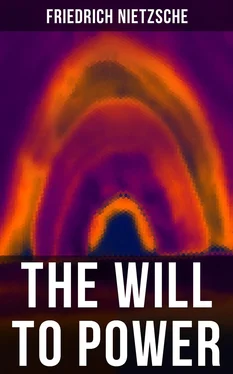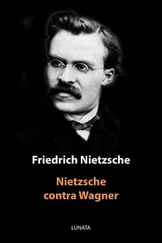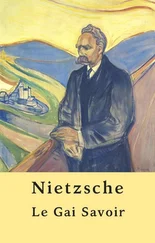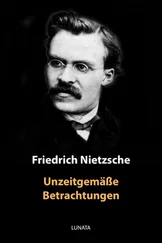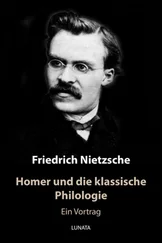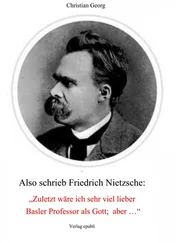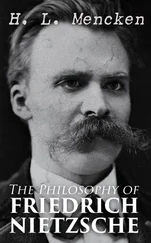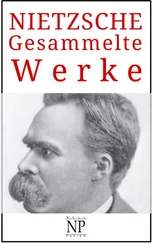1 ...8 9 10 12 13 14 ...52 ***
Let us imagine this thought in its worst form: existence, as it is, without either a purpose or a goal, but inevitably recurring, without an end in nonentity: " Eternal Recurrence. "
This is the extremest form of Nihilism: nothing (purposelessness) eternal!
European form of Buddhism: the energy of knowledge and of strength drives us to such a belief. It is the most scientific of all hypotheses. We deny final purposes. If existence had a final purpose it would have reached it.
***
It should be understood that what is being aimed at, here, is a contradiction of Pantheism: for "everything perfect, divine, eternal," also leads to the belief in Eternal Recurrence. Question: has this pantheistic and affirmative attitude to all things also been made possible by morality? At bottom only the moral God has been overcome. Is there any sense in imagining a God "beyond good and evil"? Would Pantheism in this sense be possible? Do we withdraw the idea of purpose from the process, and affirm the process notwithstanding? This were so if, within that process, something were attained every moment—and always the same thing. Spinoza won an affirmative position of this sort, in the sense that every moment, according to him, has a logical necessity: and he triumphed by means of his fundamentally logical instinct over a like conformation of the world.
***
But his case is exceptional. If every fundamental trait of character, which lies beneath every act, and which finds expression in every act, were recognised by the individual as his fundamental trait of character, this individual would be driven to regard every moment of his existence in general, triumphantly as good. It would simply be necessary for that fundamental trait of character to be felt in oneself as something good, valuable, and pleasurable.
***
Now, in the case of those men and classes of men who were treated with violence and oppressed by their fellows, morality saved life from despair and from the leap into nonentity:. for impotence in relation to mankind and not in relation to Nature is what generates the most desperate bitterness towards existence. Morality treated the powerful, the violent, and the "masters" in general, as enemies against whom the common man must be protected— that is to say, emboldened, strengthened. Morality has therefore always taught the most profound hatred and contempt of the fundamental trait of character of all rulers— i.e., their Will to Power. To suppress, to deny, and to decompose this morality, would mean to regard this most thoroughly detested instinct with the reverse of the old feeling and valuation. If the sufferer and the oppressed man were to lose his belief in his right to contemn the Will to Power, his position would be desperate. This would be so if the trait above-mentioned were essential to life, in which case it would follow that even that will to morality was only a cloak to this "Will to Power," as are also even that hatred and contempt. The oppressed man would then perceive that he stands on the same platform with the oppressor, and that he has no individual privilege, nor any higher rank than the latter.
***
On the contrary ! There is nothing on earth which can have any value, if it have not a modicum of power—granted, of course, that life itself is the Will to Power. Morality protected the botched and bungled against Nihilism, in that it gave every one of them infinite worth, metaphysical worth, and classed them altogether in one order which did not correspond with that of worldly power and order of rank: it taught submission, humility, etc. Admitting that the belief in this morality be destroyed, the botched and the bungled would no longer have any comfort, and would perish.
This perishing seems like self-annihilation, like an instinctive selection of that which must be destroyed. The symptoms of this self-destruction of the botched and the bungled: self-vivisection, poisoning, intoxication, romanticism, and, above all, the instinctive constraint to acts whereby the powerful are made into mortal enemies (training, so to speak, one's own hangmen), the will to destruction as the will of a still deeper instinct—of the instinct of self-destruction, of the Will to Nonentity.
***
Nihilism is a sign that the botched and bungled in order to be destroyed, that, having been deprived of morality, they no longer have any reason to "resign themselves," that they take up their stand on the territory of the opposite principle, and will also exercise power themselves, by compelling the powerful to become their hangmen. This is the European form of Buddhism, that active negation, after all existence has lost its meaning.
***
It must not be supposed that "poverty" has grown more acute, on the contrary! "God, morality, resignation" were remedies in the very deepest stages of misery: active Nihilism made its appearance in circumstances which were relatively much more favourable. The fact, alone, that morality is regarded as overcome, presupposes a certain degree of intellectual culture; while this very culture, for its part, bears evidence to a certain relative well-being. A certain intellectual fatigue, brought on by the long struggle concerning philosophical opinions, and carried to hopeless scepticism against philosophy, shows moreover that the level of these Nihilists is by no means a low one. Only think of the conditions in which Buddha appeared! The teaching of the eternal recurrence would have learned principles to go upon (just as Buddha's teaching, for instance, had the notion of causality, etc.).
***
What do we mean to-day by the words "botched and bungled"? In the first place, they are used physiologically and not politically. The unhealthiest kind of man all over Europe (in all classes) is the soil out of which Nihilism grows: this species of man will regard eternal recurrence as damnation—once he is bitten by the thought, he can no longer recoil before any action. He would not extirpate passively, but would cause everything to be extirpated which is meaningless and without a goal to this extent; although it is only a spasm, or sort of blind rage in the presence of the fact that everything has existed again and again for an eternity—even this period of Nihilism and destruction. The value of such a crisis is that it purifies, that it unites similar elements, and makes them mutually destructive, that it assigns common duties to men of opposite persuasions, and brings the weaker and more uncertain among them to the light, thus taking the first step towards a new order of rank among forces from the standpoint of health: recognising commanders as commanders, subordinates as subordinates. Naturally irrespective of all the present forms of society.
***
What class of men will prove they are strongest in this new order of things? The most moderate—they who do not require any extreme forms of belief, they who not only admit of, but actually like, a certain modicum of chance and nonsense; they who can think of man with a very moderate view of his value, without becoming weak and small on that account; the most rich in health, who are able to withstand a maximum amount of sorrow, and who are therefore not so very much afraid of sorrow—men who are certain of their power, and who represent with conscious pride the state of strength to which man has attained.
***
How could such a man think of Eternal Recurrence?
56.
The Periods of European Nihilism.
The Period of Obscurity : all kinds of groping measures devised to preserve old institutions and not to arrest the progress of new ones.
Читать дальше
